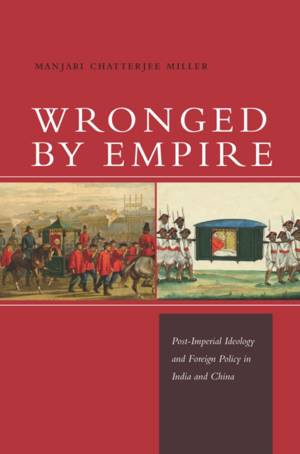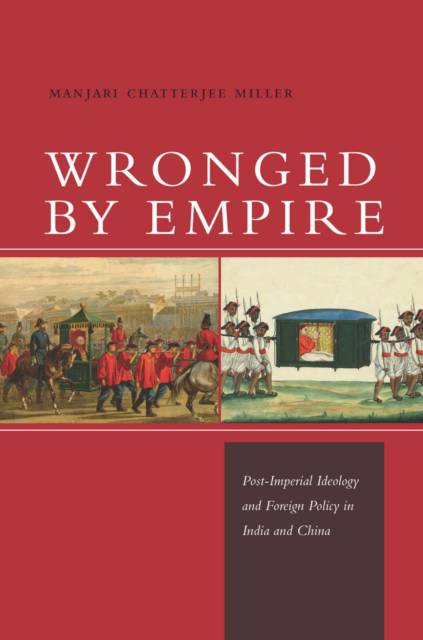
- Retrait gratuit dans votre magasin Club
- 7.000.000 titres dans notre catalogue
- Payer en toute sécurité
- Toujours un magasin près de chez vous
- Retrait gratuit dans votre magasin Club
- 7.000.0000 titres dans notre catalogue
- Payer en toute sécurité
- Toujours un magasin près de chez vous
Wronged by Empire
Post-Imperial Ideology and Foreign Policy in India and China
Manjari Chatterjee MillerDescription
Although India and China have very different experiences of colonialism, they respond to that history in a similar way-by treating it as a collective trauma. As a result they have a strong sense of victimization that affects their foreign policy decisions even today.
Wronged by Empire breaks new ground by blending this historical phenomenon, colonialism, with mixed methods-including archival research, newspaper data mining, and a new statistical method of content analysis-to explain the foreign policy choices of India and China: two countries that are continuously discussed but very rarely rigorously compared. By reference to their colonial past, Manjari Chatterjee Miller explains their puzzling behavior today. More broadly, she argues that the transformative historical experience of a large category of actors-ex-colonies, who have previously been neglected in the study of international relations-can be used as a method to categorize states in the international system. In the process Miller offers a more inclusive way to analyze states than do traditional theories of international relations.
Spécifications
Parties prenantes
- Auteur(s) :
- Editeur:
Contenu
- Nombre de pages :
- 192
- Langue:
- Anglais
- Collection :
Caractéristiques
- EAN:
- 9780804793384
- Date de parution :
- 01-08-14
- Format:
- Livre broché
- Format numérique:
- Trade paperback (VS)
- Dimensions :
- 150 mm x 226 mm
- Poids :
- 294 g

Les avis
Nous publions uniquement les avis qui respectent les conditions requises. Consultez nos conditions pour les avis.






